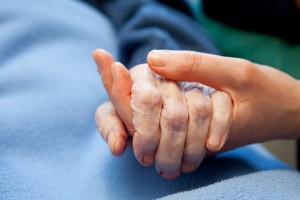
Advances in medical technology and standards of living have enabled Americans to live longer lives than ever. However, those who enter their golden years with serious health issues are often not able to live alone. Families trust that nursing homes and assisted living facilities will be able to provide effective and compassionate care to aged loved ones. Sadly, in many cases this trust is broken by ineffective, negligent, and malicious individuals and organizations.
A recent Boston Globe article highlights several examples of shocking elder abuse. Incidents of reported abuse included “two staffers arrested for allegedly slapping and pinching two elderly residents who have Alzheimer’s” and “an 88-year-old man with a history of falling, and who had a tube in his chest for dialysis treatment, apparently tripped in the bathroom of his Revere assisted living residence and bled to death before staffers reached him.” For anyone with a relative currently receiving nursing home or assisted living care, these reports are a chilling indictment of the current state of affairs.
The Boston Globe isn’t the only media outlet reporting on this elder abuse crisis. A similar article from Syracuse.com tells the story of a 92 year old woman who was physically abused by a nursing home employee named Natalie Harris. According to this report, “Harris grabbed the woman by the upper arms, lifted her from the bed and forced her into a wheelchair, causing substantial bruising on the resident’s upper arms.”
Why do these incidents occur? Poorly trained and overworked staff, ineffective management, and insufficient resources are all to blame. While families might assume that senior care facilities are heavily regulated, Peter Antonellis, a compliance officer at Elder Affairs, stated that “we don’t have the staff to regulate it.” Elder care advocates echo this sentiment, pointing to outdated rules, inadequate guidelines, and poor standards for medication management as primary concerns.
Even more troubling is that these issues seem to be getting worse over time. According to David Hoey, an attorney who handles elder abuse cases, noted that his office has gone from receiving one or two elder abuse calls a year, to now getting at least one per month. Other law firms, including Wormington & Bollinger, have seen similar trends, with nursing home abuse cases growing in an environment of underfunding, poor training, and insufficient regulation.
If you have a loved one currently in any kind of nursing home or assisted living situation, it is important that you watch for signs of abuse and be proactive in ensuring quality of care. Keep in mind that abuse isn’t always physical. Tragically, both emotional and financial abuse of the elderly are common. However, by being active in your elderly loved ones’ lives and being vigilant in vetting the quality of their living situation, you can help to make their final years happy, healthy, and enjoyable.
If you suspect that a friend or family member is currently the victim of elder abuse, it is also important to seek legal advice as soon as possible. By fighting for the rights of your friends and family members, you’ll also be helping to improve the system for others by forcing elder care organizations to improve quality standards and treat their residents with respect. To learn more about your legal options and find justice for your loved ones, contact the team at Wormington & Bollinger today. We’ve made it our mission to fight for victims of nursing home abuse and help your family find peace and closure.

